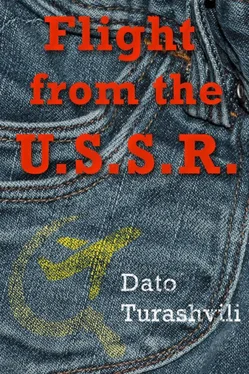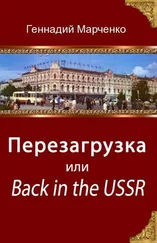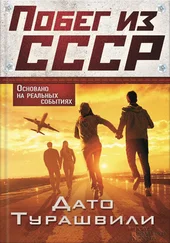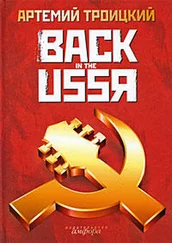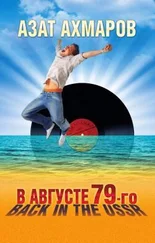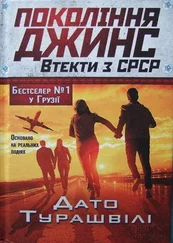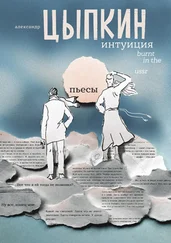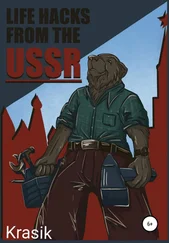“The moment they take him out, I need to know straight-away.”
“Please don’t make me lose my job, I’ve got two small children. If I could at least know what you’re going to do…”
“Nothing special. When Gega’s taken to be executed, you must tell the women to start singing, as loud as possible. Tell them it’s my request to hearten Gega. Tell them he’s taken to be shot.”
The warden stood in amazement and listened to this strange prisoner so utterly unlike anyone he had ever seen in his career…
They were all executed on the same day. Special effort was made to stop the news from spreading and in most cases it worked. The monk and the brothers were taken out of their cells at daytime. They opened the door to Gega’s cell and he met them standing tall, still believing it would not happen. He had no idea where he was being taken; did not know there was a room at the end of the passage, where his final sentence awaited him. On the way, Gega heard distant singing, from somewhere above, but thought he was imagining it. He smiled slightly, very slightly. One floor above, the women prisoners sang earnestly, standing very close to the locked window of their cell, singing loudly and crying. Unlike Gega, Dima Lortkipanidze could hear them very well. He was shouting Gega’s name and banging his fists on the cell door until they were raw and covered in blood.
Dima’s voice carried through the entire prison. Within seconds, other inmates joined him and soon every-one in the Ortachala prison knew that down in the cellar, a man was about to be executed. Within seconds, all prison floors were echoing Gega’s name until their voices were hoarse. When Gega reached the end of the corridor, the rumble became so intense that the wardens accompanying him looked deeply worried. It might have been due to haste, or the Soviet Empire was really was rotting, because as soon as Gega stepped into the room, the waiting executioner shot him from behind, in full accordance with his instructions. But his gun misfired. The unexpected snag threw the executioner into a state of panic. With a mysterious calm, Gega turned to his executioner with a smile.
“Earlier you could at least kill people, now you can’t even do that anymore.”
The killer fired for the second time and suddenly everything was over…
Although the parents of the dead hijackers were not notified of the execution, the Soviet authorities had some rules that were even more ruthless. After October 3rd, the families were sent bills, and they were obliged to pay the cost of the bullets used for killing their children. Each bullet cost three roubles, but Gega’s mother had to pay six—with the extra for the first jammed bullet.
The executioners were paid fourteen roubles for each executed prisoner on top of their monthly salary. What does it say about a society where the price of human life cost fourteen roubles?
They were not heroes. What they did is considered a crime everywhere.
Their parents, families, and friends never claimed they were innocent. They always believed they should be made to answer for what they did. Hijacking was a crime anywhere, especially when it involved fatalities, and the group had to be punished.
Yet, there was also a firm belief that that the state’s extraordinary brutality and eventual murder of the hijackers was a crime arguably worse than the hijacking itself. A monk, who did not even participate in the actual hijacking was persecuted and condemned for a crime he played no part in.
The impression he left, however, was long lasting. His guard in Tblisi’s KGB prison quit his job and eventually went to find the monk’s remote monastery. A legend of the famous monk was instantly born in the local village. Many believed that he survived his execution, and that an innocent man was spared.
Even today, many people in Georgia believe the airplane hijackers are still alive in some far off place. They desperately wanted to fly away and they did…
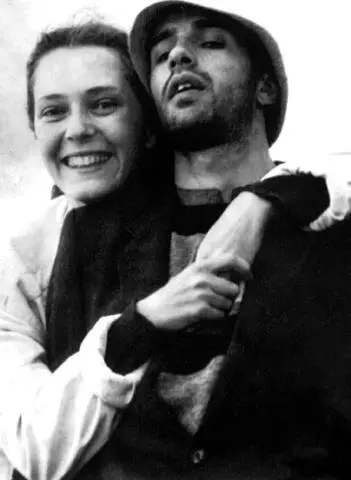
Tina Petviashvili, Gega Kobakhidze
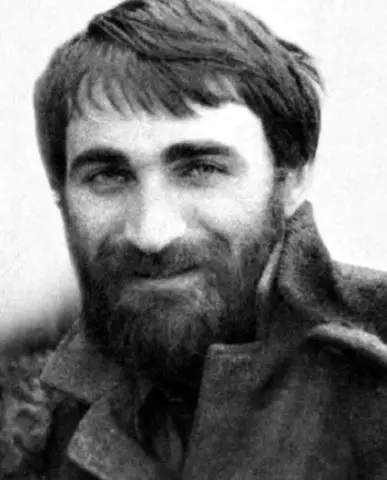
“The Monk,” Father Tevdore Chikhladze
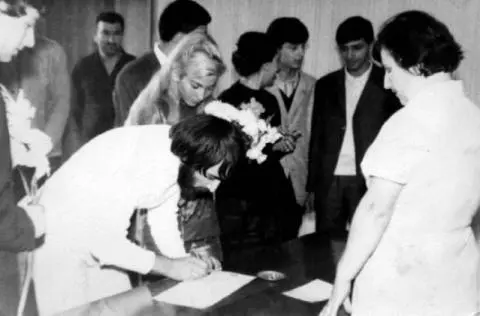
Temur Chikhladze (before he became Father Tevdore) and Guliko Eristavi’s wedding ceremony
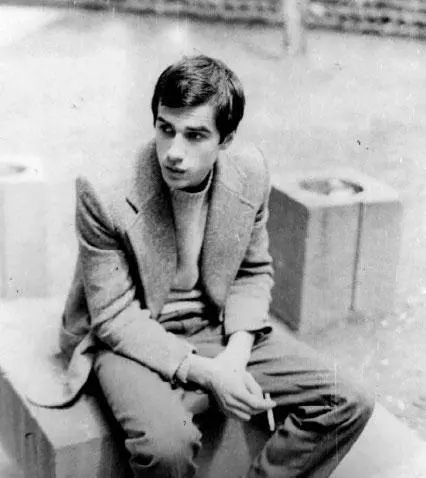
Gega Kobakhidze
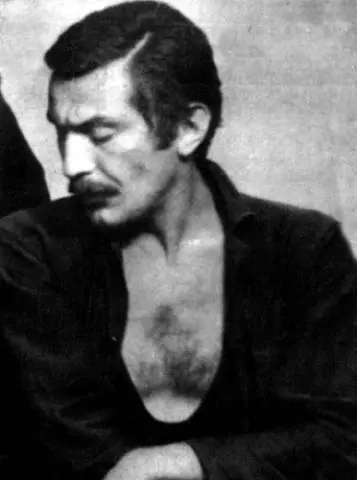
Among the hijackers was aspiring painter Gia Tabidze
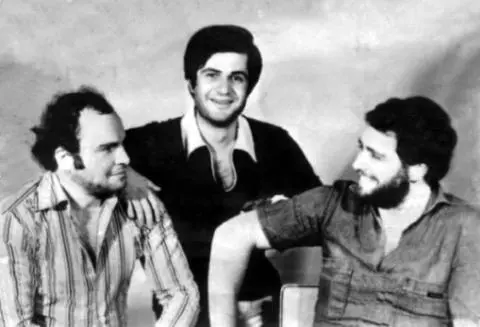
Kakhaber Iverieli, Paata Iverieli, Unknown
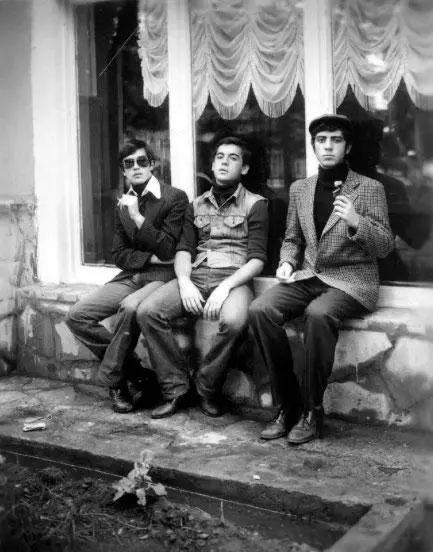
Gega Kobakhidze, Irakli Charkviani, Giorgi Mirzashvili
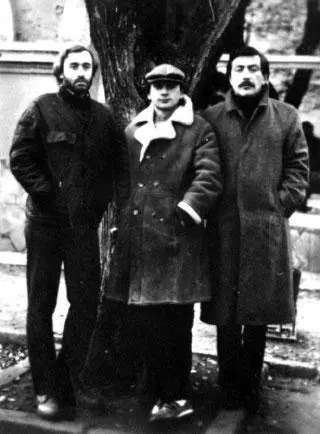
Soso Tsereteli, Dato Mikaberidze, Gia Tabidze
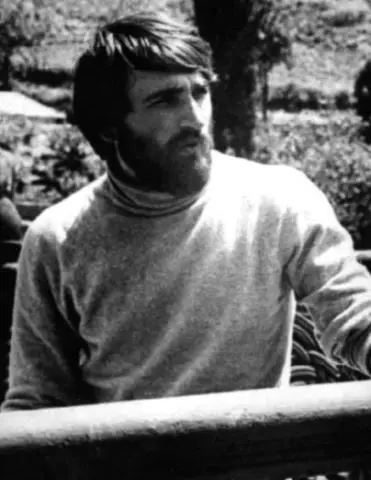
“The Monk,” Father Tevdore Chikhladze
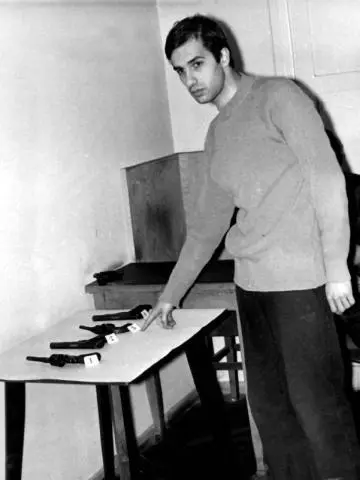
Identifying evidence from the failed hijacking during the governmental investigation
OTHER WORKS BY DATO TURASHVILI:
Novels and Short Stories:
A Collection of Short Stories (1991)
Known and Unknown America (1993)
Festival of Loneliness (1995)
Where did Sumerians Go (1997)
My Irish Grandfather (1999)
Kathmandu (2000)
A night of a Sunk City (2003)
Tibet is not Far (2005)
Gurji Khatun (2007)
Flight From the USSR ( Jeans Generation ) (2009)
Black Cats (2010)
The Third (2011)
American Fairy Tales (2011)
If I Was a Footballer (2011)
While Waiting for Dodo (2012)
The King of Woods (2013)
Plays:
One Fine Day (1991), Kutaisi Drama Theatre
Dialogues in Train (1993), Rustaveli State Theatre
Troubadour (1997), Manhattan Theatrical Studio and Tkibuli Public Theatre
Jeans Generation (2000), Free Theatre
Green Horizon (2003), Free Theatre
Two Islands in the Black Sea (2005), Bolnisi Theatre
Tomorrow They Will Fly Above our Garden” (2007), Theatre Come and See
Border Line (2008), Marjanishvili Theatre
Black Cats (2009), Free Theatre
Euro-Georgia (2011), Marjanishvili Theatre
While Waiting for Dodo (2012), Akhaltsikhe Theatre, (2013), Marjanishvili Theatre
Читать дальше
